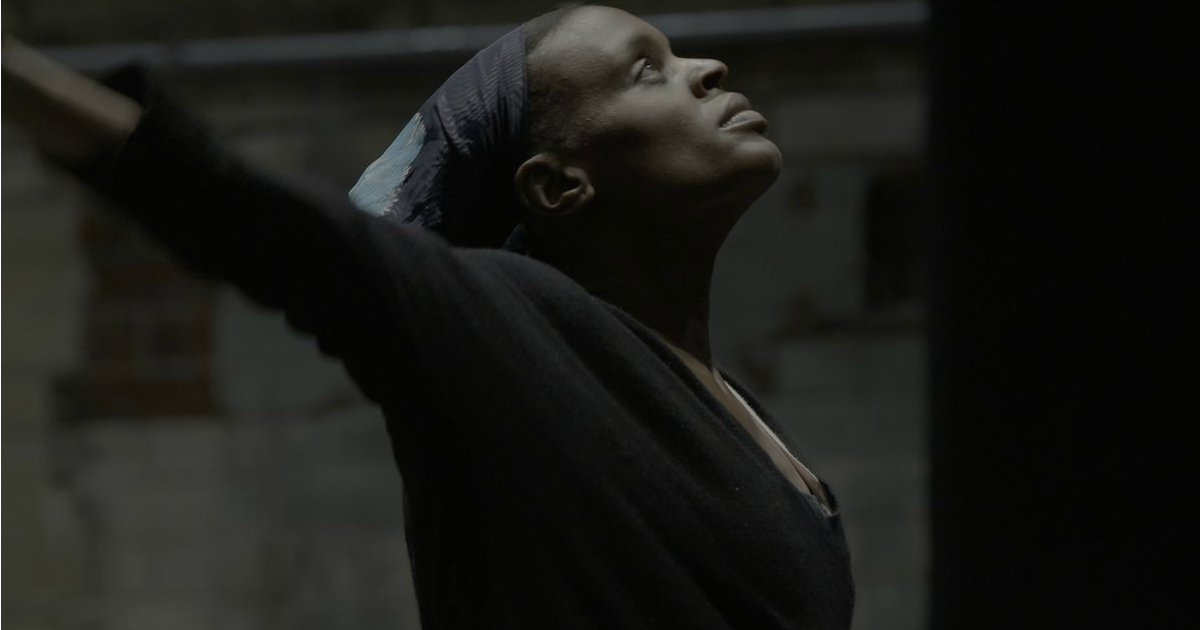
With now only six credits to his name, director Andrew Rossi has gone from a relatively unknown documentary filmmaker to one of the few “names” in the medium. He’s been primarily a director of New York-focused documentaries, that use subjects like the Metropolitan Museum of Art or the New York Times to spin larger yarns about culture writ large. With his 2014 film Ivory Tower breaking this tradition a little, Rossi has returned to the story of a New York original following his 2016 film First Monday in May, Bronx Gothic.
To those with an affinity for modern performance art, the title Bronx Gothic may be familiar, and that’s because that’s the world Rossi has set his sights on. Taking inspiration from performer Okwui Okpokwasili’s one-woman show of that very name, Rossi introduces us to Okpokwasili and lets the viewer steep in the singular vision that is her harrowing show. Gothic itself tells a thinly veiled riff on Okpokwasili’s life as a child of color in the Bronx in the early 1980s, blending various art traditions and disciplines to attempt to embed the viewer the life and world of a young woman of color as she comes of age intellectually and sexually. We see as Okpokwasili meditates on what the female and black experience is like during youth, using dance, song and even reciting a series of letters that play directly into the semi-autobiographical narrative.
But the film is also at once about the transformation involved in the experience of art. The viewer sees as the show begins, with Okpokwasili dancing into a great sweat for a great length of time as the audience enters the space and for some time after they’ve seated. As the artist wisely points out, she sees that there is a “transformation” when one experiences something at such a length. There’s a power to what follows that’s risen exponentially as time passes. To see an artist laid truly bare through the violence of the motions, the sweat that’s accumulated, there’s something deeply profound to that idea.
Rossi doesn’t just film the performance however. One of the real delights of this film comes following each of the performances (the film is set during Okpokwasili’s final tour of this piece), in which the artist directly confronts the audience through a Q/A session. We don’t see these sequences at great length, but Rossi is clearly interested in the idea of one artist’s experience being shared broadly across race or gender lines. Rossi also introduces us to her husband, Peter Born, and her daughter, and these glimpses at Okpokwasili’s personal life help elevate this picture into something a touch more personal. These sequences are quite moving, and the ultimate introduction of Okpokwasili’s parents, Nigerian immigrants, leads the film to become at once a profound meditation on the power of art, but also a deeply personal look into a singular artist’s life and experience.
Overall, Bronx Gothic is a quiet, unassuming piece of documentary film making that sees one of documentary film’s more interesting artists take on a performer confronting some of today’s most important topics. A touch too long, the film does begin to spin its wheels in the final act, and yet the exploration of both Okpokwasili’s art and personal life make the film keep its head above water. Not necessarily one of documentary cinema’s most enthralling pieces of art, Bronx Gothic is a quiet and moving look at the power of shared experiences through art.



